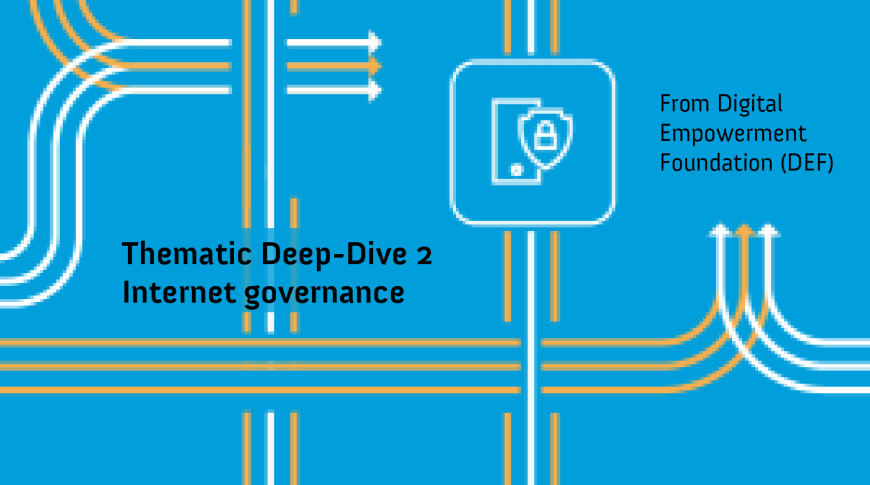
When internet is governed, life is governed. If internet is shut, life is shut. If internet is restricted life is restricted. If internet is inaccessible lives are standstill; if internet is deprived, lives are malnourished. Likewise if internet is free, life is free; if internet is available to all, all is available to people. Here is an example of a case of the death of a child in a state of India due to malnutrition which was because for 21 months his family was unable to access and get stipulated ration as their digital id was not linked to ration card number since both had different spellings of the same name. As a result they did not have enough food on their plate resulting in malnutrition followed by death. This is certainly a case of “death by data” and “death by internet governed rules. Our question is: is the internet governance relevant to only those who use and access internet or/and those also who do not have access or ability or privilege to have internet access?
If my life is not dependent on internet then how come you govern my life? if you do so, then how come the general governance system is not governed by the internet in contextualisation. And here is a statement by Digital Empowerment Foundation. More than three decades after its inception, the Internet’s original promise has been distorted due to authoritarian restrictions, the commodification of user data and subsequent threats to privacy and surveillance thus necessitating changes in the way the Internet is governed. For example, authoritarian governments are increasingly demanding data from tech companies and they have to comply for fear of losing markets and legal and other threats.
Whether these requests follow the due process set by the law is another question. Since majoritarian national governments can legislate provisions that throttle dissent over the internet, what we need are global enforceable standards and robust mechanisms for enabling democratic scrutiny at national levels. At the same time, these global standards should not be hijacked by powerful corporations and governments in the global north. They have to be evolved through democratic participatory discussions that take into account historic imbalances in representation and power. To me, that is the true promise of the Global Digital Compact, It is a starting point to building back better. There are precedents to building such global norms. For example, while still mitigated by colonial institutions and often appropriated by businesses, environmental norms such as precautionary principles, via operationalisation of social and environmental impact assessment, still provides a shield for communities to safeguard their lives, livelihoods and environment.
Same with the convention on biodiversity and its access to benefit principles. Digital albeit a human invention, has become an integral part of our lives just as nature and it is time we conserve its dream of fostering better human connections.
Such a process would include revising existing institutions in terms of representation, in terms of existing functioning, in terms of power held by them, and sometimes even revisiting their mandates. Of course, not just the governments but tech companies have also be held accountable in their efforts to profit if they are doing more harm than good. As such, the technical standards should cover these organisations too. Despite all its limitations, United Nations is one organisation that can undertake such a feat. Ending here with the hopes that we can build back better but in a slow manner that takes everyone forward instead of moving fast and breaking things.